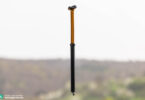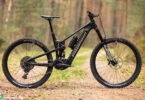The Specialized S-Works Turbo Levo won our big group test in 2019. There have been just a few updates in the details and spec for 2020. Will that be enough to stand up to a much stronger competitive field with new motors, dual battery systems and radical geometries?
Click here for an overview of the best eMTB 2020 group test.
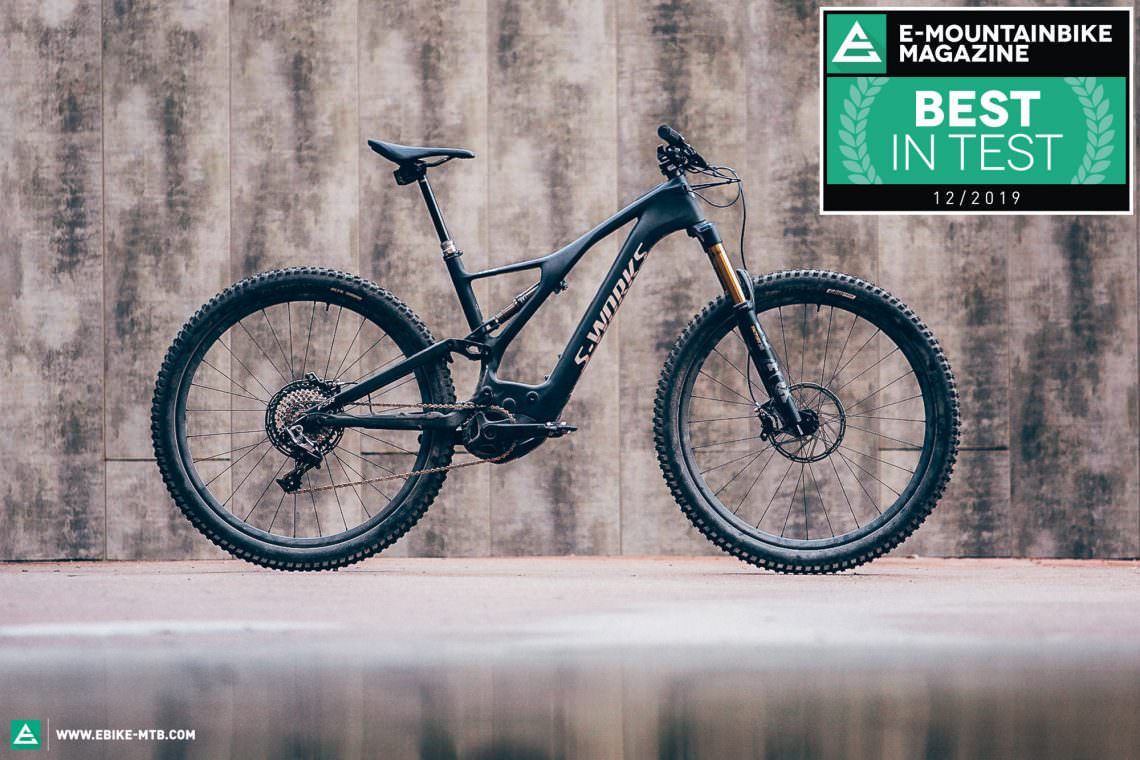
The Specialized S-Works Turbo Levo is out to defend its title almost unchanged for this year. The Specialized 2.1 motor, which is based on the Brose Drive S Mag, is beautifully integrated into the sexy carbon frame and powered by an internal 700 Wh battery. No matter where you look, you’ll find well thought-out details on this € 11,499 bike, the most expensive on test. You’ll find the TCU control unit in the top tube, multitool in the headset, integrated speed sensor and the soft, ribbed chainstay protector. Specialized have listened to the feedback and criticism of their customers: they’ve modified the shape of the rocker so that small stones no longer damage the sensitive carbon seat tube and the opening through which mud could get into the cavities around the motor has been sealed off with a sturdy rubber lip.
Components, weight and technical details of the Specialized S-Works Turbo Levo
For the most part, the suspension and componentry remains unchanged. That means you’ll find a FOX 36 Factory GRIP2 fork and a FOX FLOAT DPS Factory shock each offering 150 mm travel. A lightweight SRAM XX1 11-speed drivetrain takes care of the gears. Admittedly we had expected Specialized to update to a 12-speed drivetrain here. When it comes to the tires, a lot has happened on the 20.8 kg Levo. The 29” Roval Traverse SL carbon wheels are fitted with Specialized’s Eliminator tires with the robust BLCK DMND casing on the rear, but stick with the 2.6″ wide Specialized Butcher up front. However, the tread pattern of the Butcher has been improved, making it much more predictable and easier to control when it’s angled into a turn.
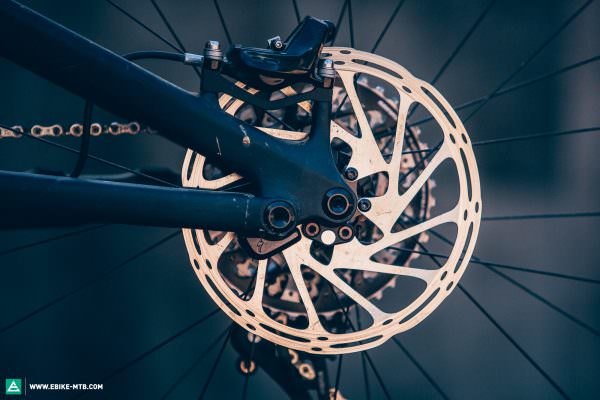
The speed sensor on the Levo is securely mounted at the dropout. The magnet on the brake rotor is impossible to lose.
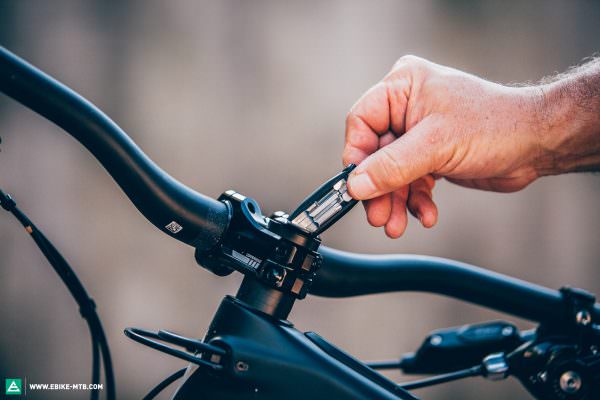
The SWAT tool in the steerer tube is always at hand and can be stowed back in the steerer tube in seconds without rattling. Unfortunately, there is no chain tool.
Specialized S-Works Turbo Levo
€ 11,499
Specifications
Motor Specialized 2.1 90Nm
Battery Specialized M2 700Wh
Display Specialized TCU
Fork FOX 36 GRIP2 Factory 150 mm
Rear Shock FOX FLOAT DPS Factory 150 mm
Seatpost RockShox Reverb AXS 125 – 170 mm
Brakes SRAM CODE RSC 200/200 mm
Drivetrain SRAM X01 1x11
Stem Deity Copperhead 20 mm
Handlebar Specialized Trail Carbon 780 mm
Wheelset Roval Traverse Sl 29"
Technical Data
Size S M L XL
Weight 20.8 kg
Perm. total weight 130 kg
Max. payload (rider/equipment) 109 kg
Trailer approval no
Kickstand mount no
Specific Features
fully functional even without cockpit remote
Mission Control App
integrated multi tool
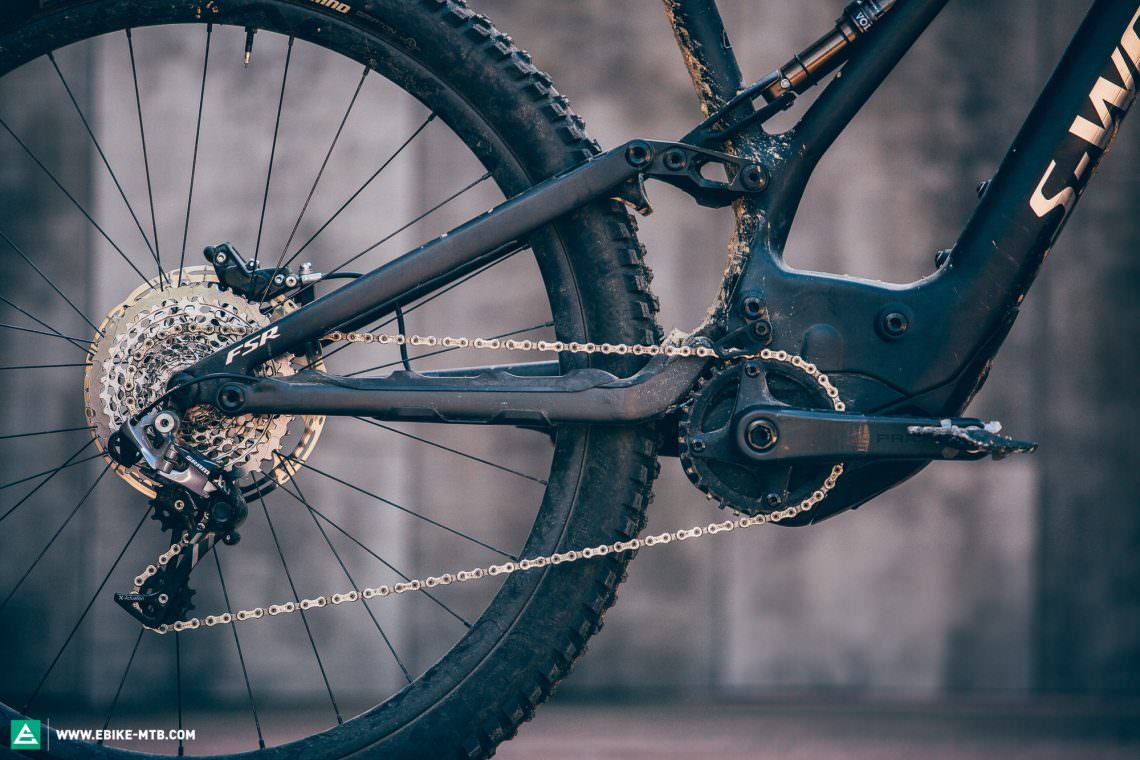
The SRAM XX1 11-speed drivetrain is super light and shifts precisely. However, it’s no longer up to par in terms of gear range. This is especially noticeable on slow technical climbs.
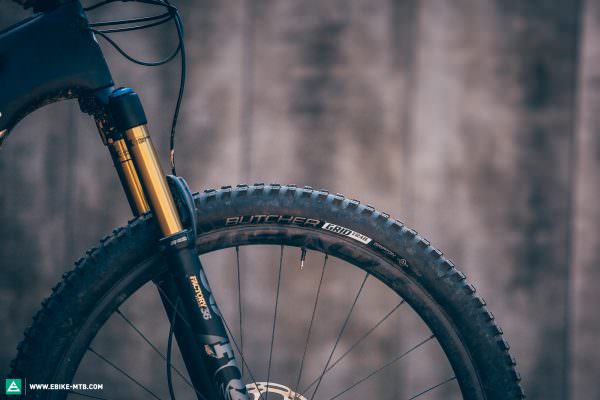
The Specialized Butcher has been updated for 2020, making it much more predictable in the corners. The 2020 Eliminator tire on the rear now also comes in the robust BLCK DMND casing.
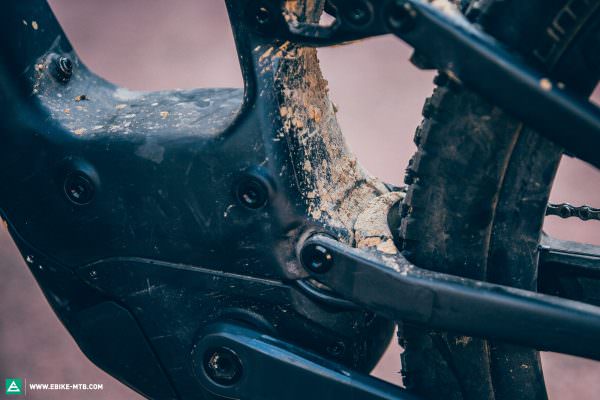
Dirt often used to accumulate over the pivot axle and got into the cavities around the motor. Specialized have solved this problem with a rubber lip.
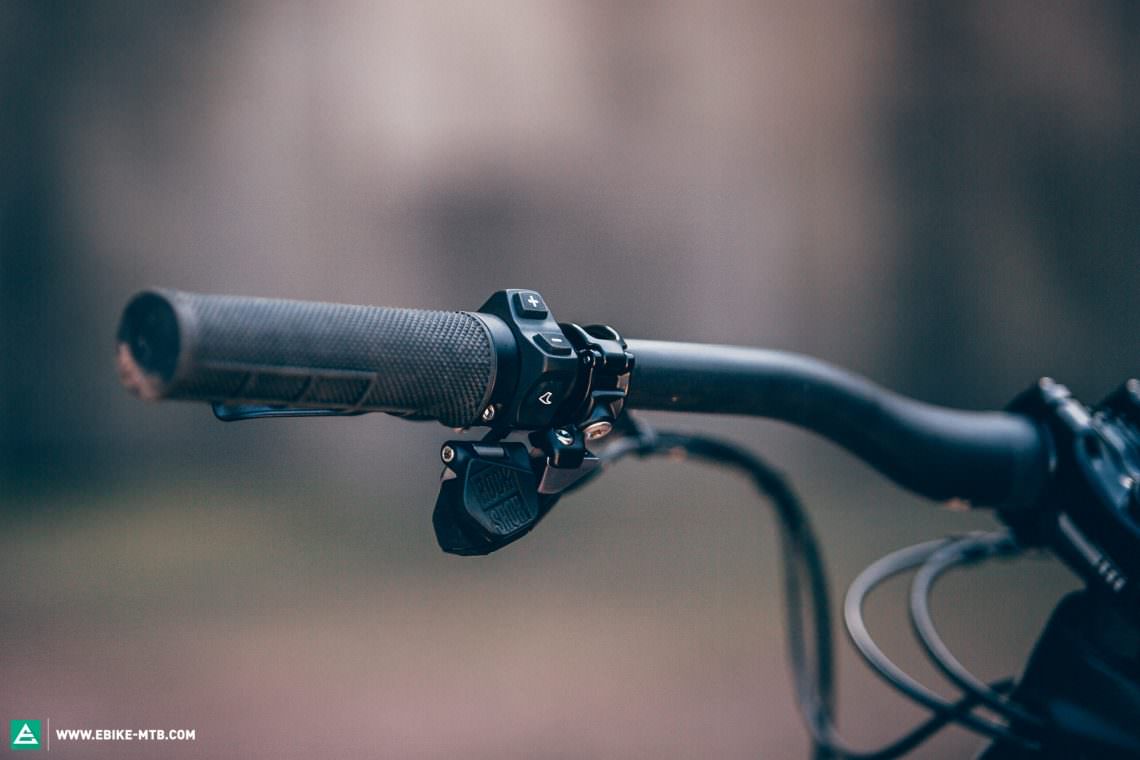
The Levo works with or without the compact handlebar remote. The TCU in the top tube is also compatible with a display or a Garmin.
Geometry and size of the Specialized
The geometry of the Specialized S-Works Turbo Levo can be adjusted via a flip-chip in the shock mount. Even with it in the low setting, the geometry figures of the Levo aren’t extreme.
| Size | S | M | L | XL |
|---|---|---|---|---|
| Seat tube | 380 mm | 410 mm | 455 mm | 505 mm |
| Top tube | 577 mm | 600 mm | 631 mm | 664 mm |
| Head tube | 95 mm | 95 mm | 125 mm | 140 mm |
| Head angle | 66.0° | 66.0° | 66.0° | 66.0° |
| Seat angle | 75.0° | 74.8° | 74.5° | 74.1° |
| Chainstays | 455 mm | 455 mm | 455 mm | 455 mm |
| BB Drop | 27 mm | 27 mm | 27 mm | 27 mm |
| Wheelbase | 1,182 mm | 1,202 mm | 1,235 mm | 1,266 mm |
| Reach | 415 mm | 435 mm | 455 mm | 480 mm |
| Stack | 606 mm | 606 mm | 634 mm | 647 mm |
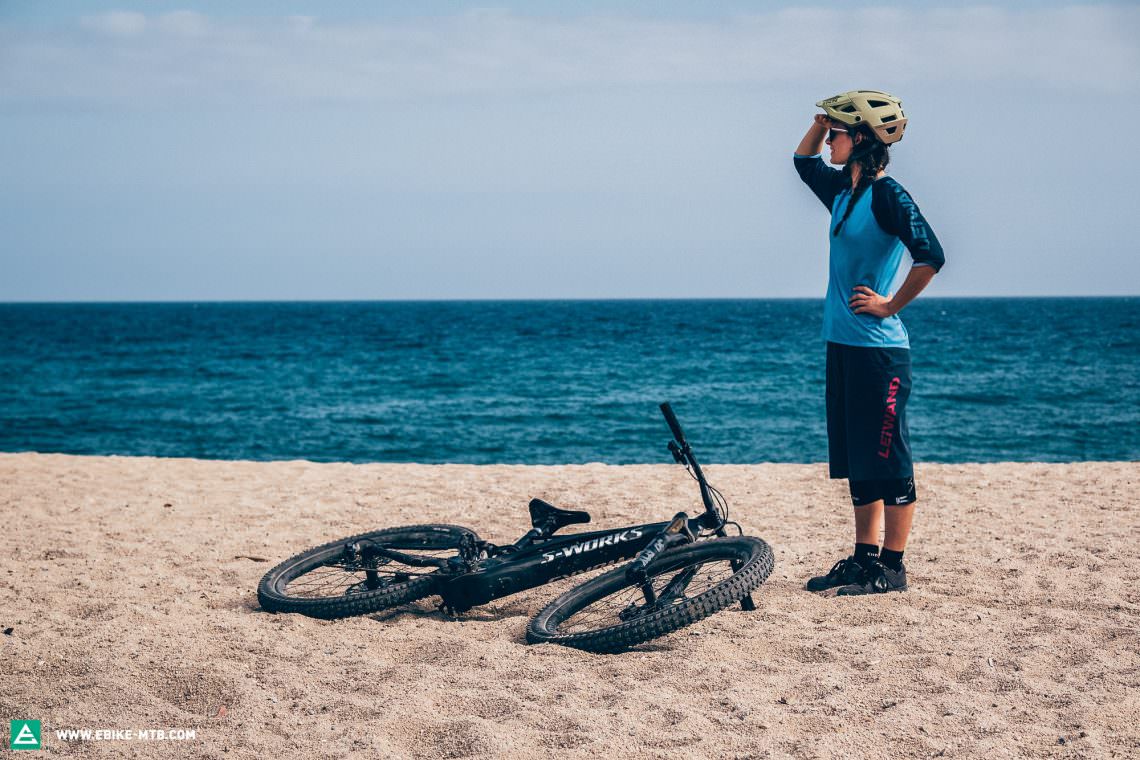
The Specialized S-Works Turbo Levo on the trail
As is typical for a Specialized, you immediately feel comfortable on board the Levo. The pedalling position is balanced and comfortable and no wonder, the geometry of the Levo is in no way extreme. In the stock setting, Specialized’s 2.1 motor transfers plenty of power to the rear wheel in a very natural feeling way. If you’re not happy with the assistance modes as they are, you can customise them with the Mission Control app. The Levo is unbeatable on the climbs whether its up forest roads or flowing trails. Thanks to its direct and precise handling you’ll leave the competition behind through tight corners and short punchy climbs. When things get steeper and more technical, the Levo needs a lot of momentum to overcome big obstacles and ramps. Slow, technical climbing is not its strong suit. You have to actively keep the front wheel on the ground, while the other end of the bike is missing an easier gear for riding in the middle support levels with a natural ride feel to conserve battery levels and prevent wheel spins. Overall, the Levo can’t quite keep up with the best climbers in the test field such as the Orbea or Mustache here.
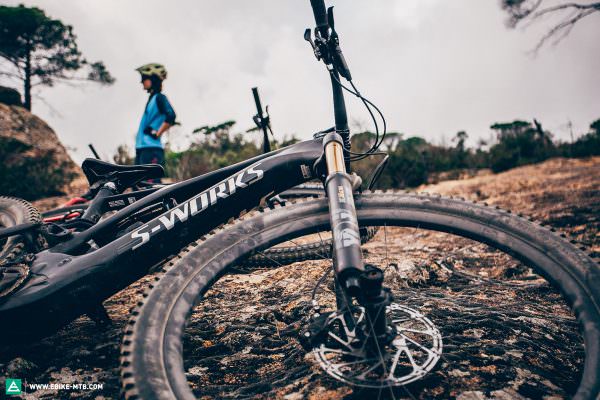
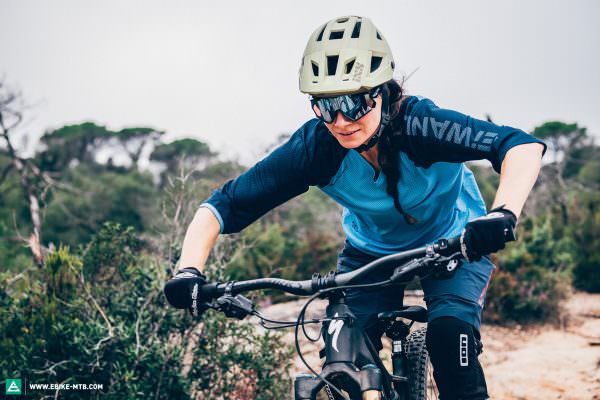
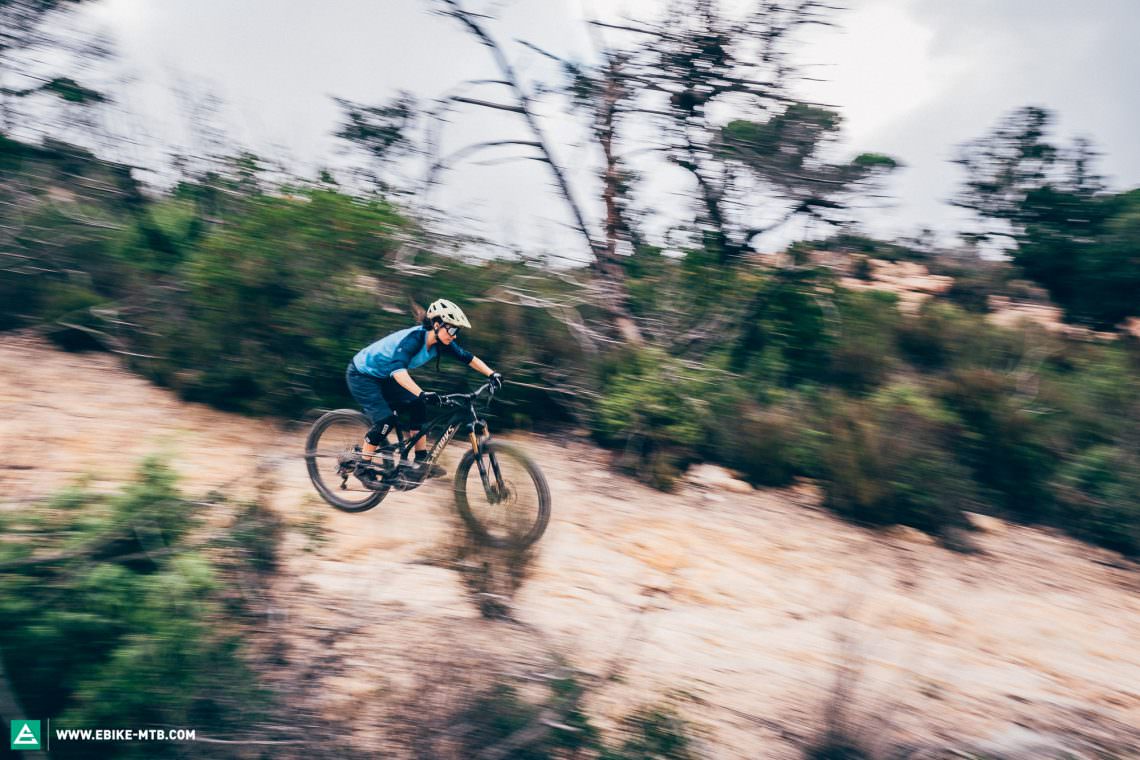
We didn’t expect to see an 11-speed drivetrain in the 2020 group test. However, you’ll only notice this on the trail in extreme situations.
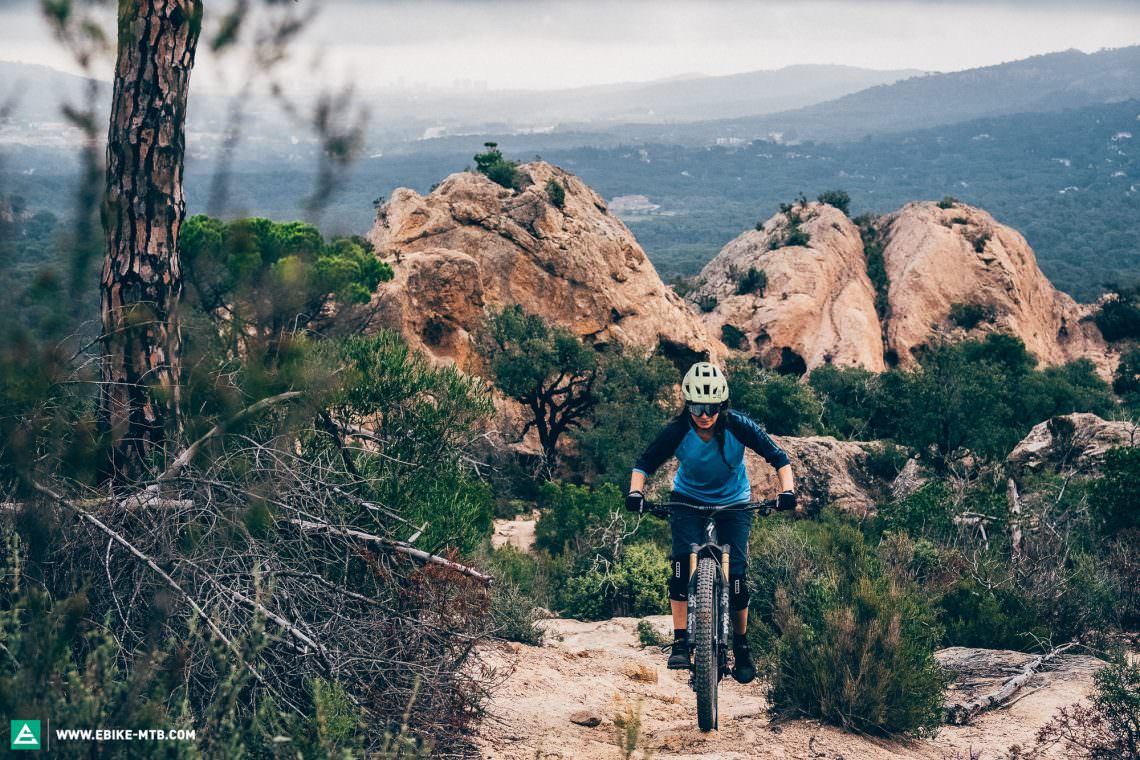
One thing is clear: going downhill, the Levo is not a bike on which you can let go of the brakes and charge on. For that, Specialized have made the Kenevo. The S-Works Levo is playful and a lot more agile and fun as you weave around the trail. Spontaneously changing your line with a bunny hop is just as easy as quickly dodging obstacles. It is this agility, which allows you to make spontaneous line choices together with geometry that instils you with confidence. Thanks to its balanced weight distribution, no other bike in the test field can keep up with the Levo on moderately steep terrain or on flowy or natural trails. The Levo is impeccably balanced despite the large battery and it offers sufficient reserves and appropriate componentry to make for a super versatile bike. If you happen to veer off into Kenevo territory, the Levo will still be able to keep up, but you’ll have to be vigilant and ride the bike actively. If you do so, the Levo can deal with drops and jumps without issue.
Riding the Levo is pure fun.
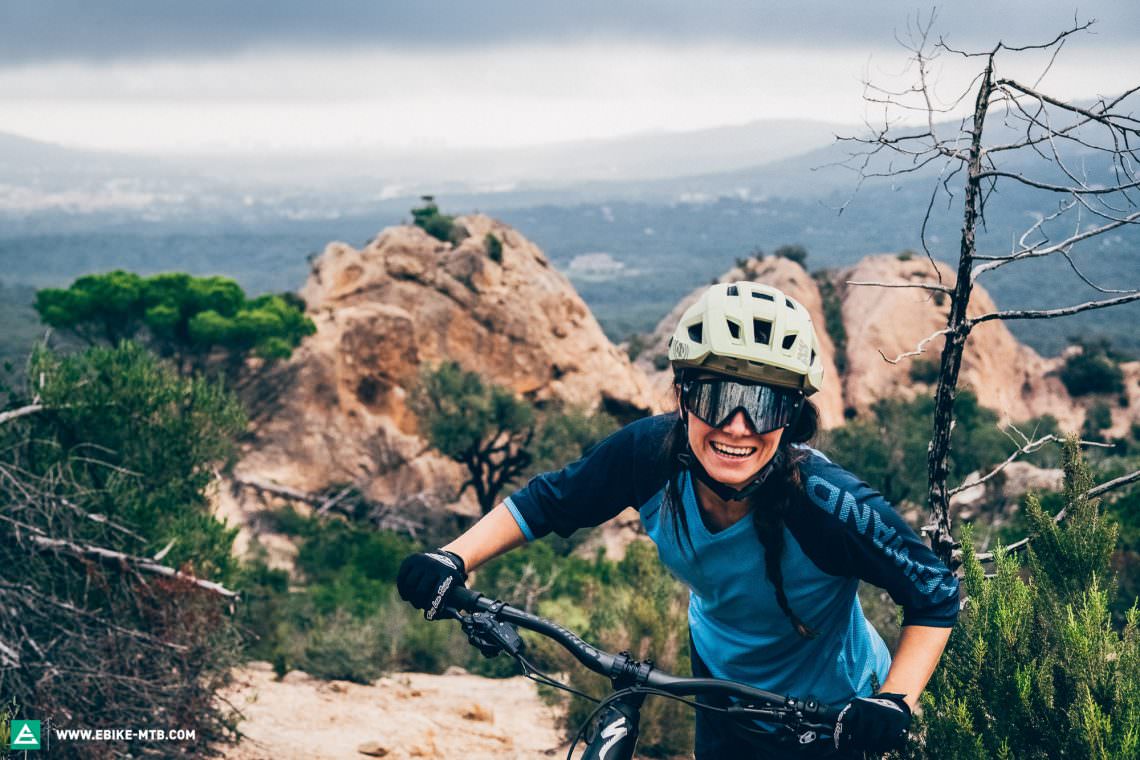
Tuning tip: For technical climbs: push the saddle all the way forward | 12-speed drivetrain for a bigger gear range
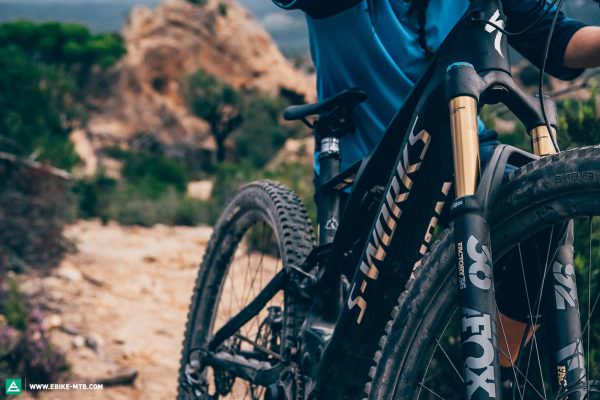
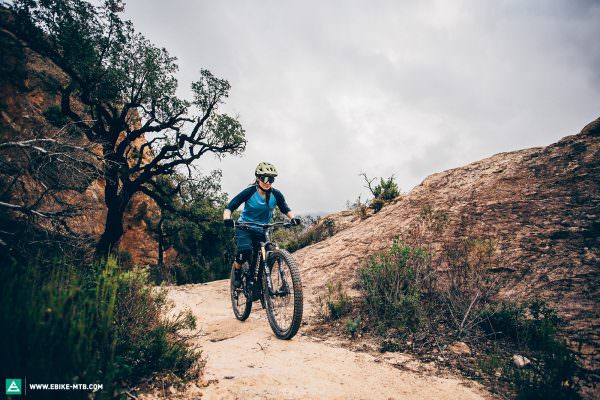
Riding Characteristics
7Agility
- sluggish
- playful
Stability
- nervous
- stable
Handling
- demanding
- balanced
Riding fun
- boring
- lively
Motor feeling
- digital
- natural
Motor power
- weak
- strong
Value for money
- poor
- top
Conclusion
When it comes to integration, design, motor setup and app connectivity, Specialized are leading the way. The smart Specialized S-Works Turbo Levo is rolling proof. On the trail, it remains very predictable, good-natured and a lot of fun in every situation. With its less extreme geometry, a large integrated battery and comfortable pedalling position, it’s a great option for any type of rider. If you only want to ride downhill as fast as possible on rough terrain and take on very steep technical climbs, you’ll find more suitable options in the test field, but the overall package that is the Levo makes for a brilliant all-rounder, which everyone can immediately have a lot of fun on. Admittedly by a significantly smaller margin compared to last year, the Specialized S-Works Turbo Levo secures the Best in Test once again. The Levo is the best eMTB of 2020!
Tops
- excellent all-rounder
- great motor setup
- customisable cockpit
Flops
- 11-speed drivetrain
- hefty price
You can find out more about the Specialized S-Works Turbo Levo at specialized.com.
The test field
You can find everything you need to know about our test for the best eMTB of 2020 right here!
All bikes in test: BULLS SONIC EVO AM 6 | Cannondale Moterra 1 | Canyon Spectral:ON 9.0 | COMMENCAL META POWER 29 TEAM 2020 | CONWAY XYRON 927 Carbon | CUBE Stereo Hybrid 160 HPC | FANTIC XF1 180 Race | FOCUS JAM² 9.9 DRIFTER | Giant Reign E+ 0 Pro | Haibike XDURO Nduro 10.0 | Liteville 301 CE MK1 | MERIDA eONE-SIXTY 10K | Moustache Samedi 27 Trail | Norco Range VLT C1 | NOX Hybrid Enduro 7.1 | Orbea WILD FS M-LTD | Pivot Shuttle 29 | Rocky Mountain Altitude Powerplay Carbon 90 Rally Edition | ROTWILD R.X750 ULTRA | SIMPLON Rapcon Pmax | Specialized Turbo Kenevo Expert | Specialized S-Works Turbo Levo | Trek Rail 9.9 | Whyte E-180 RS V1 | YT DECOY CF Pro Race
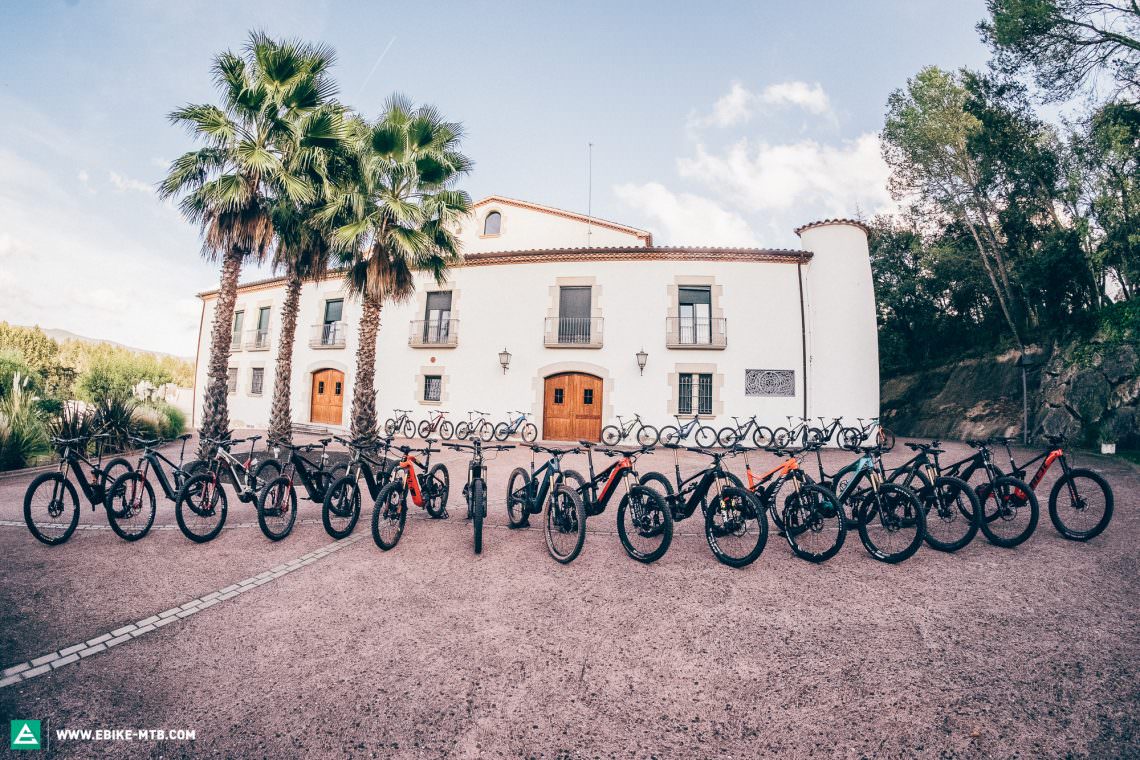
Relaxed and comfortable riding on surfaced roads, both uphill and downhill.↩
Easy climbs up trails with few obstacles, wide turns and a moderate incline.↩
Active and playful descents on easy trails with few obstacles, wide turns and a moderate slope.↩
Single-track climbs on challenging terrain. Loose ground, steps, roots, tight corners and occasionally extreme inclines.↩
Singletrack descents on challenging terrain. Loose ground, steps, roots, tight corners and small jumps as well as some very steep descents.↩
High speed descents on sometimes very rough trails with large jumps and obstacles that you can’t roll over.↩
The rating used for riding characteristics refers to the bikes in the group test and the current state of development of eMTBs. The best bikes managed to blend supposedly opposite riding characteristics, feeling both lively and stable at the same time. The handling describes the balance of the bike on downhill sections. The information regarding motor-power refers to the ride-feeling in the overall context of the bike and not exclusively to the motor – that’s why the same motor can present different values.↩
Did you enjoy this article? If so, we would be stoked if you decide to support us with a monthly contribution. By becoming a supporter of E-MOUNTAINBIKE, you will help secure a sustainable future for high-quality cycling journalism. Click here to learn more.
Words: Felix Stix, Robin Schmitt, Jonas Müssig Photos: Finlay Anderson, Robin Schmitt, Felix Stix, Markus Frühmann





